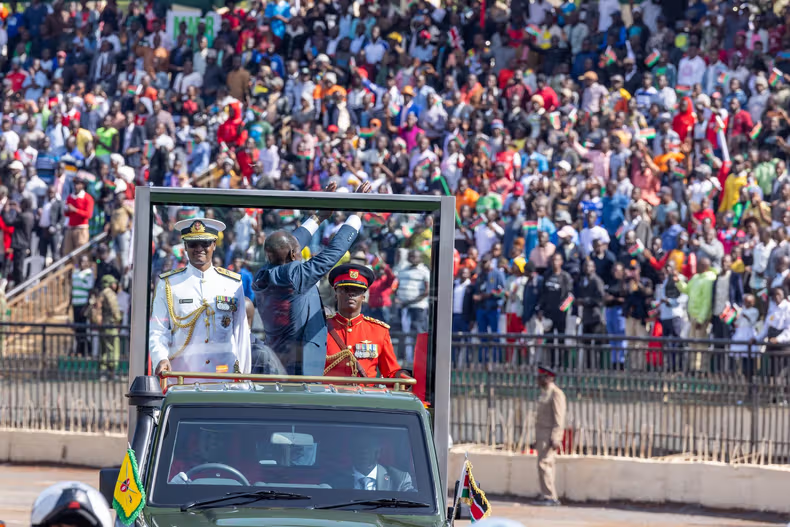In a bold move to bolster local industry, President William Ruto has announced that Kenya will cease importing shoes. The decision aims to strengthen the domestic footwear industry, create jobs, and promote economic self-sufficiency.
In his Madaraka Day speech, President William Ruto outlined an ambitious plan to transform Kenya’s leather industry into a competitive export powerhouse, significantly boosting the economy and creating jobs.
Ruto emphasized the importance of supporting local manufacturers and reducing reliance on foreign products.
“Starting this year, Kenya will stop importing shoes,” Ruto declared. “We have the resources and talent to produce high-quality footwear right here at home. It’s time we prioritize our local industries and create jobs for our people.”
The announcement is part of a broader economic strategy to stimulate growth in various sectors of the economy. By halting shoe imports, the government expects to drive demand for locally made products, encouraging innovation and investment within the country’s footwear industry.
President Ruto highlighted the potential benefits of this move, including job creation, increased income for local artisans, and the development of related industries.
“This policy will not only provide employment opportunities but also enhance the skills of our workforce and improve our trade balance,” he noted.
The government aims to increase the sector’s annual income from Sh15 billion to Sh120 billion by 2027.
This substantial growth is expected to create 100,000 jobs, up from the current 17,000, and raise annual footwear production from 8 million to 36 million pairs worth Sh72 billion.
“I have made this commitment, that shortly we will not be importing shoes from anywhere. We will be wearing our shoes; made in Kenya, using our leather,” he said.

Key to this transformation is the shift from exporting raw materials and semi-processed products to developing a sophisticated industry capable of manufacturing internationally competitive finished leather goods.
Kenya produces up to 3 million hides and 18 million skins each year, and the government is focused on developing local capacity to handle these raw materials, providing quality tanning and manufacturing finished leather products such as shoes, bags, and belts.
To support this ambitious strategy, President Ruto announced several financial commitments.
The Ewaso Ng’iro South Development Authority’s leather factory will receive Sh400 million for upgrades, including Sh200 million for modern equipment, Sh100 million for building a footwear factory, and Sh100 million for mopping up hides and skins.
Machinery for increasing processing capacity at the factory has already been procured and installed.
President William Ruto leads 61st Madaraka Day celebrations at the Masinde Muliro Stadium on June 1, 2024
Additionally, the construction of the Kenya Leather Industrial Park at Kenanie in Machakos County is 85% complete.
This industrial park will feature a common effluent treatment plant, two tanneries, two leather manufacturing plants, and 100 acres allocated for investors to set up leather factories by the end of the year.

The government is also focusing on improving the supply of quality hides and skins.
To this end, 703 flayers have been trained, and subsidised flaying equipment has been provided to 680 slaughter points.
These measures aim to ensure a consistent supply of high-quality raw materials for the leather industry.
“We are developing local capacity to handle hides and skins to provide quality raw material tanning as well as the local manufacturing of finished leather goods such as shoes, bags, and belts,” President Ruto emphasised.
President Ruto’s vision for the leather industry is part of a broader strategy to enhance Kenya’s economic resilience through value addition and industrialisation.
By focusing on high-potential sectors like leather, the government aims to create sustainable economic growth and provide Kenyans with new opportunities for employment and entrepreneurship.
Do you have a story in your community or an opinion to share with us: Email us at thestandard256@gmail.com
Or WhatsApp Us on +256750474440
